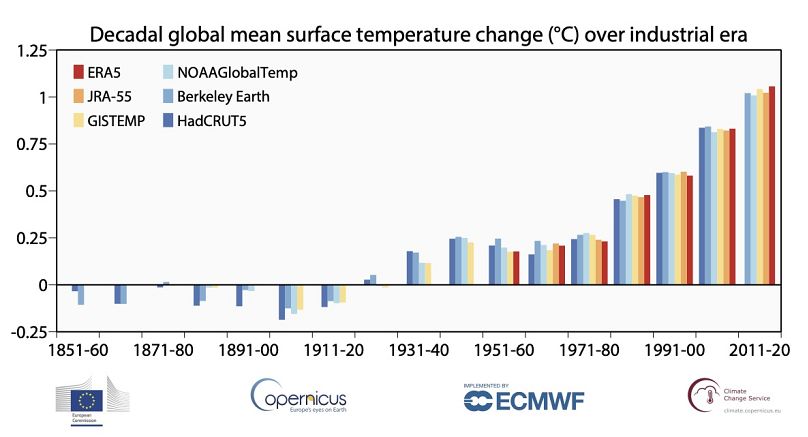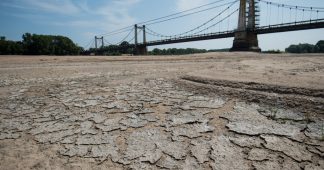Feb 10, 2021
2020, the hottest year on record wrapped up the hottest decade ever. Although global lockdowns have not stifled the warming climate, the global health crisis might nudge us into climate action.
Last year wasn’t business as usual. But while our livelihoods were disrupted by an ongoing health and economic crisis, our planet’s climate continued on its warming course, with particularly high levels throughout the last decade. Global lockdowns have led to slightly lower greenhouse gas emissions, while air quality improved, at least temporarily. But the world in 2020 still experienced record-breaking temperatures, and extreme weather in what experts deem now the hottest year in history, on par with 2016, according to Copernicus Climate Change Service (C3S) who was the first to publish such data. The World Meteorological Organisation (WMO) combining five datasets confirmed that 2020, 2019 and 2016 were the warmest years on record with minimal differences between the datasets making a clear ranking difficult. Climate change might not stumble on us taking a short break from our activities. But as we gain new perspectives on what a global crisis means, we might find fresh momentum to mitigate climate change.
Global, local and ocean temperatures continued climbing
In 2020, the global climate was 0.6 C warmer than averages between 1981-2010 and around 1.25 C above pre-industrial levels, according to new data from the Copernicus Climate Change Service (C3S) and a recent report from the World Meteorological Organisation (WMO). The year also wrapped up the hottest decade registered, of which the last six years were the warmest ever. “The temperature ranking of individual years is less important than the long-term trend, which shows the unequivocal warming of the planet as a result of heat-trapping greenhouse gases from the burning of fossil fuels,” says Dr. Omar Baddour, head of Climate Monitoring and Policy Services at the WMO
Large regions of the Eurasian continents were particularly warmer than average. Europe’s 2020 was its warmest yet, almost half a degree Celsius above 2019 and 1.6 C when compared to the recent 30-year reference period. Temperatures in parts of the Arctic and northern Siberia saw temperature increases by more than 6 C from their long-term averages.
“The exceptional heat of 2020 is despite a La Niña event, which has a temporary cooling effect,” says Dr. Baddour. “It is remarkable that temperatures in 2020 were virtually on a par with 2016, when we saw one of the strongest El Niño warming events on record. This is a clear indication that the global signal from human-induced climate change is now as powerful as major naturally occurring climate drivers.”
Continue reading at www.euronews.com












